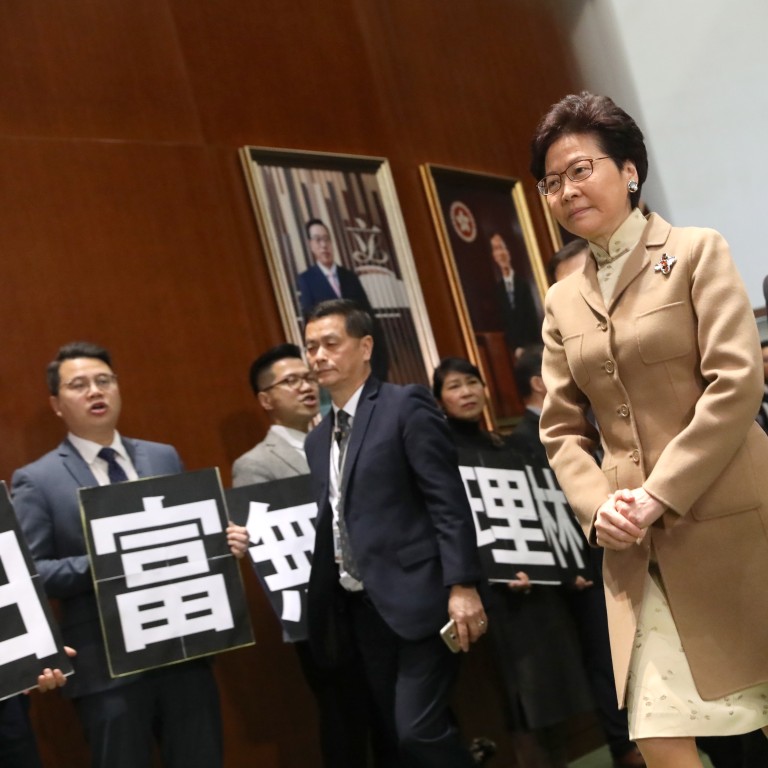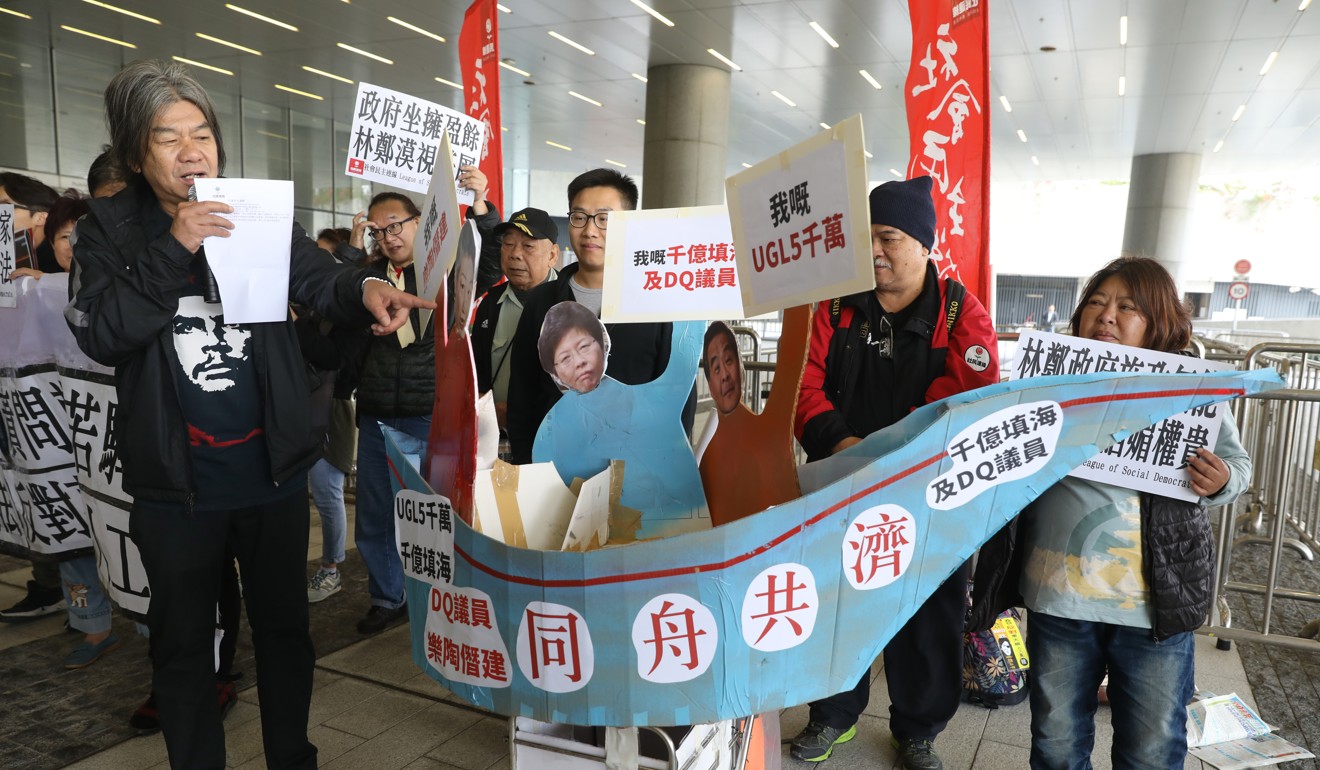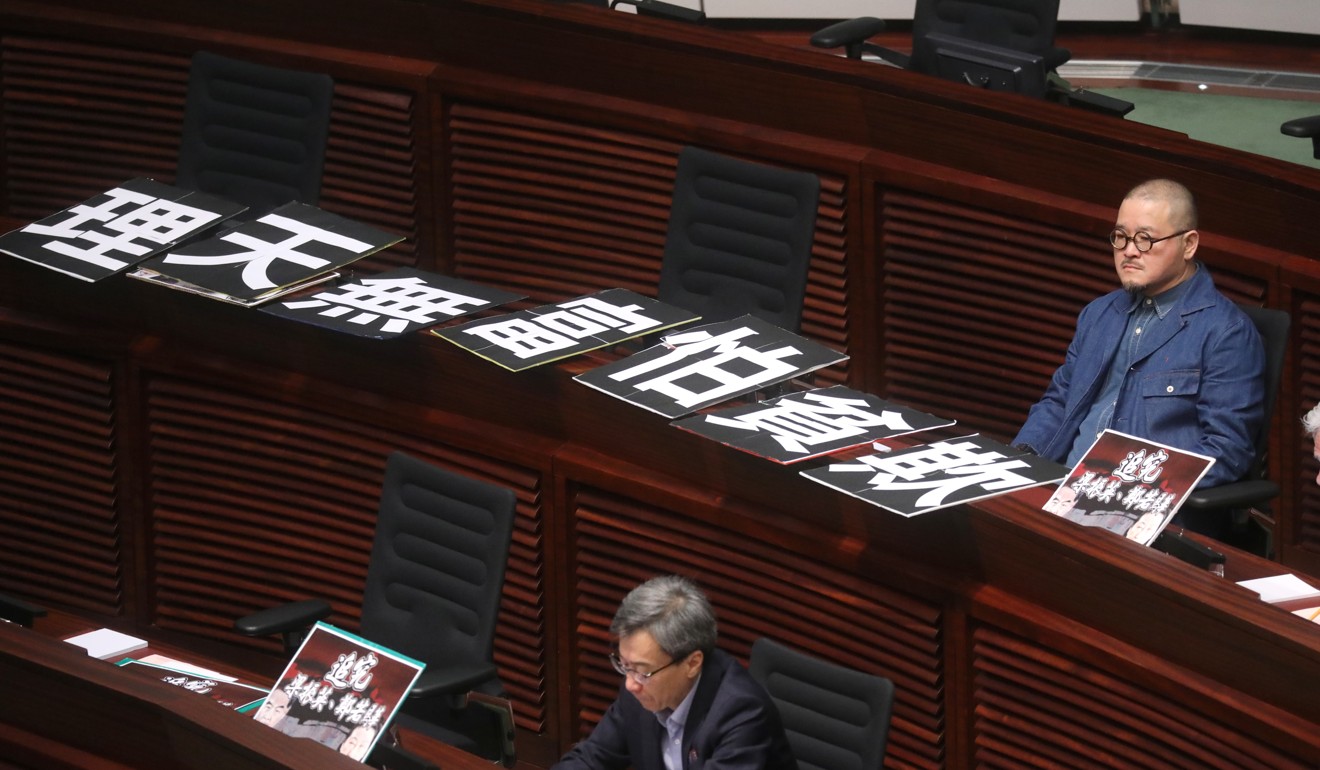
Carrie Lam ‘shocked’ as Hong Kong lawmakers criticise increase in age limit for elderly welfare payments from 60 to 65
- Chief executive says change was approved by Legco last year and cannot be reversed
Hong Kong’s leader deflected criticism from lawmakers on Thursday over an increase in the age limit for elderly welfare payments from 60 to 65, pointing out that they approved the change in last year’s budget.
Expressing shock at the opposition by lawmakers from across the political spectrum, Chief Executive Carrie Lam Cheng Yuet-ngor said the move had been approved by the Legislative Council and could not be halted.
Starting from February 1, the age limit for applying for the elderly comprehensive social security assistance (CSSA) scheme will rise from 60 to 65. The current subsidy amount ranges from HK$2,600 (US$330) to HK$3,485.
People aged 60 to 64 will only be able to apply for adult social security allowance, which ranges from HK$1,760 to HK$2,665 a month, or allowances of up to HK$5,930 a month if they are ill or disabled and require constant attendance.
During a question and answer session at Legco on Thursday, lawmakers – from the both pan-democratic and pro-establishment camps – voiced opposition to the policy change, saying the government had failed to properly consult the legislature.
Lam said she was shocked to hear that lawmakers were against the move.
“The item was approved with the budget by you,” the chief executive said. “So I was shocked to hear [the criticism].”
According to Legco records, the Appropriation Bill 2018 was passed on May 10 last year with 43 votes in support, including 39 from the pro-establishment camp.

Among the legislature’s 25 pro-democracy lawmakers, three voted yes, 11 voted no, eight abstained and three did not vote.
The bill was submitted to Legco in February last year, as the government published its 2018-2019 budget plan, to obtain the legislature’s approval of its planned expenditures.
The change in the elderly CSSA scheme was among the approved measures, Lam said, and it was impossible to halt the change.
“It was not to save money or to deprive a group of social security,” she added.
The government said earlier that the change to the CSSA scheme was to adapt to Hong Kong’s ageing population and the growth in the elderly working population. Official figures indicated that 44.4 per cent of people aged 60 to 64 were working.
The government would also provide employment assistance to those wanting to work, Lam said.
Those who voiced their opposition on Thursday included the Democratic Party’s Roy Kwong Chun-yu, Wilson Or Chong-shing of the Beijing-loyalist Democratic Alliance for the Betterment and Progress of Hong Kong (DAB) and Eunice Yung Hoi-yan of the pro-establishment New People’s Party.
Before the session, a group of pan-democrats held placards and protested outside the chamber.

Lam’s explanation failed to impress lawmakers. Speaking after the session, welfare sector lawmaker Shiu Ka-chun said the chief executive was trying to shift the blame onto legislators, including those in the pro-establishment camp.
“[Lam] is blaming the lawmakers,” he said.
Shiu said the policy change took up only one paragraph in more than 900 pages of documents that the government had provided lawmakers with during the scrutiny of the bill.
Even if lawmakers had spotted the item, Shiu said, it would have been impossible for them to amend the government’s budget or object to the reduction of a particular spending item.
Labour Party lawmaker Dr Fernando Cheung Chiu-hung echoed Shiu’s point. He said that at Legco’s welfare panel meeting in November, lawmakers from both camps endorsed a motion, tabled by Cheung, urging the government to halt the change to the CSSA scheme.
As the motion was non-binding on the government, officials ignored the panel’s opposition.
DAB lawmaker Elizabeth Quat said her party was shocked by Lam’s statements on Thursday.
She said: “We have at many times and occasions reflected our opposition … about this policy. The DAB strongly opposed this policy.”

